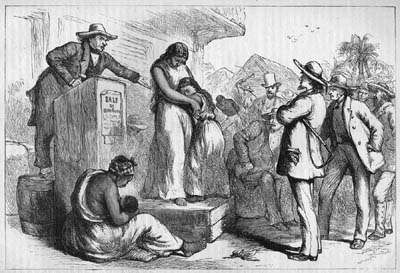The glamorization of Racism and Colorism makes these social plagues difficult to eradicate. The article linked below is another example of this stark reality.
“Rosetta Smith, Lady Governor of Trinidad“
By Angelo Bissessarsingh – Trinidad Guardian – Sunday, March 10, 2013
www.guardian.co.tt/columnist/2013-03-10/rosetta-smith-lady-governor-trinidad
 It is no secret that the immensely diverse ethnic potpourri of Trinidad’s history has produced the most beautiful women in the world. Almost every white man of substance had his coloured mistress in days of yore. The fabled attraction of the mulatto woman had its effect on the fearsome Sir Thomas Picton, who ruled with an iron hand as the first British governor from 1797-1803. Picton sent forth pimps to search out a mistress.
It is no secret that the immensely diverse ethnic potpourri of Trinidad’s history has produced the most beautiful women in the world. Almost every white man of substance had his coloured mistress in days of yore. The fabled attraction of the mulatto woman had its effect on the fearsome Sir Thomas Picton, who ruled with an iron hand as the first British governor from 1797-1803. Picton sent forth pimps to search out a mistress.
They came across Rosetta Smith, a free coloured belle who was married and who lusted after power and wealth. She was persuaded to leave her husband to share the bed of the most powerful man in the colony.
Full Article : guardian.co.tt
Related Article:
The Issue of Colorism
For the most part of my life, I have had to deal with the drama of being stereotyped from the moment I step into a room because of my light-brown complexion.

Racism, as we know in our beloved Caribbean has had its origin from the advent of European colonial experience starting with the “discovery” of life in the West Indies. There was the obliteration of the region’s earliest inhabitants by the discoverers and later inhabitants who decided that in order to benefit from their “discovery” one must first have the physical features of the discoverers. Therefore, since the natural inhabitants did not give in to demands of subserviance to the European masters they suffered the loss of their existence and another was captured and forcefully brought in to replace them. This too lend itself to all kinds of discrimination because the masters decided who is “acceptable” and who are not. Because of the miscenigation of races, new physical specimens emerged like mullattos and other lightskinned types. So in order to find accommodations for their place in society, new rules of governance and acceptance had to be devised. Racism, therefore was the answer to the divide and rule concept. This experience, created all kinds of problems for us because for the greater part of the experience we never knew how to call ourselves. We were slaves, subjects, property, freed slaves, negroes, coloreds, blacks and now Africans. Who knows where this description may leads us finally!
But throughout the experience racism took all different forms of prejudice and discrimination which very may have accounted for what we see today as the reason for crime, perversion and the alarming rate of self-denial in our society. We need to re-discover who we really are and have relevant discussions that would lead to resolutions of who we really are and how to comport ourselves into society so that we can share in the benefits that societal living may still offer us.
While stories like this are legitimate accounts of historial events, I find the very start of the article set quite an ugly tone. This idea that our ethnically mixed population makes our females ‘beautiful’ is fraught with colourism and race prejudice yet it is something we bandy about quite casually.
It is even worse to begin an article in this way that then goes on to talk about the power that Rosetta Smith was able to wield. The reader is left with a clear equation that equates light skin colour with sexual desirability, cunning, smarts and finally power.
Certainly Africans on the lighter end of the colour spectrum found themselves in far more desirable circumstances than darker skinned counter parts. However an account like this, prefaced by the writer’s personal interjection about the beauty of our women being due to ethnic mixing, says just as much about our problems with colourism as the historical account does.